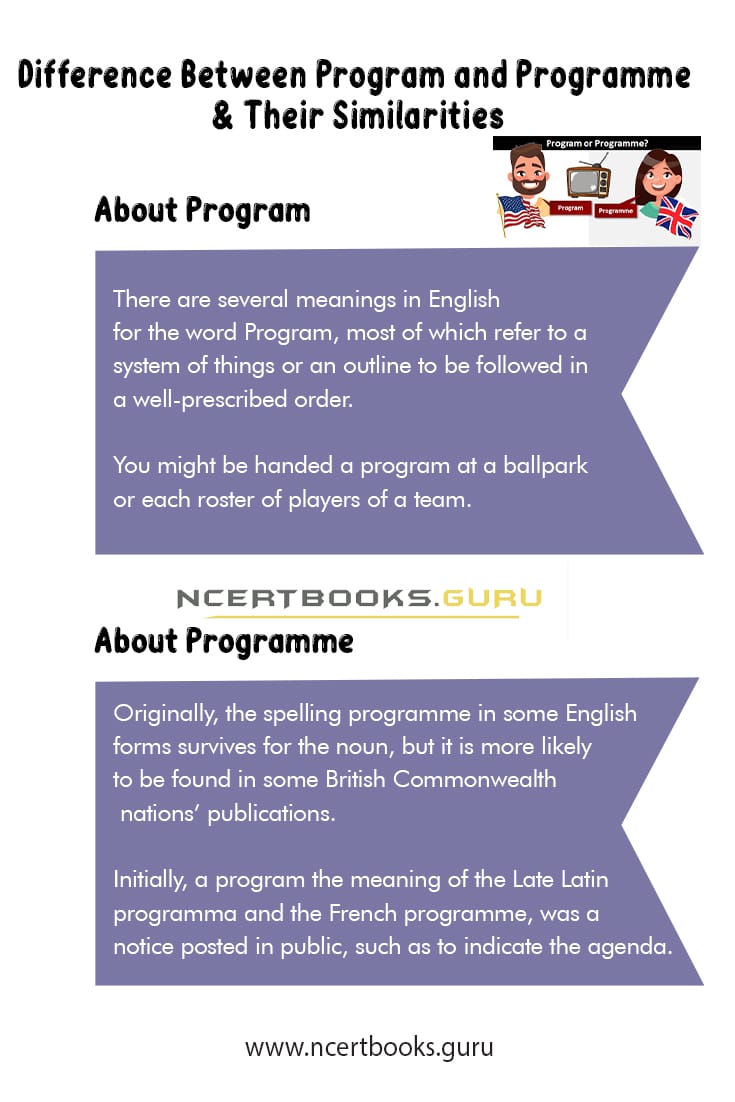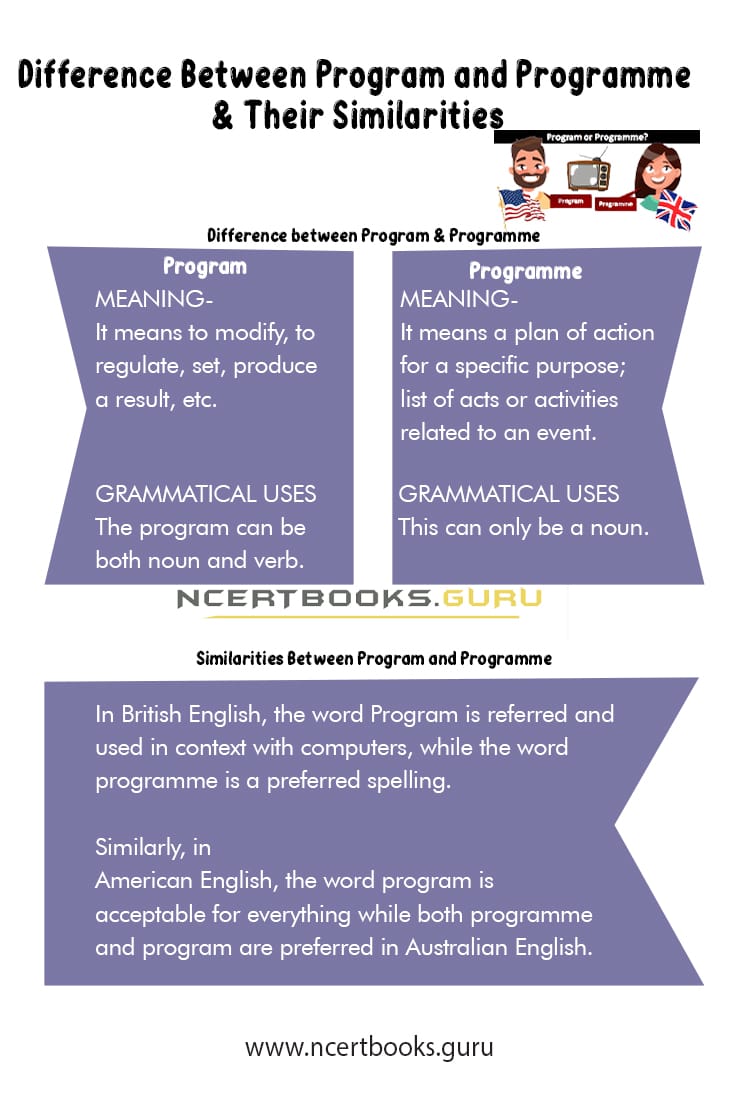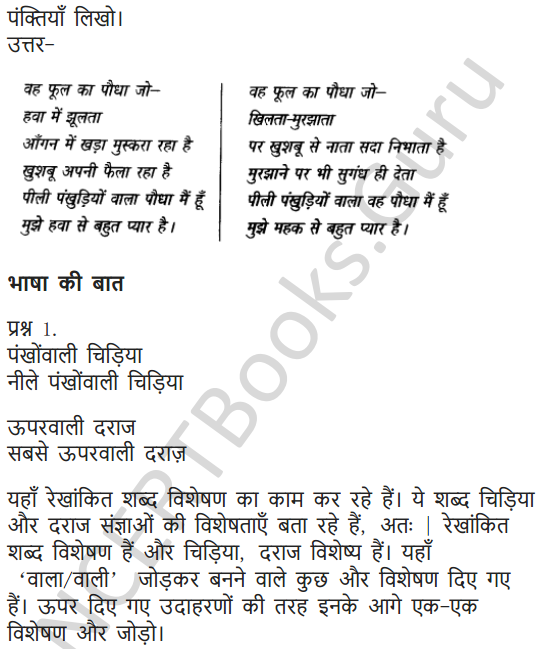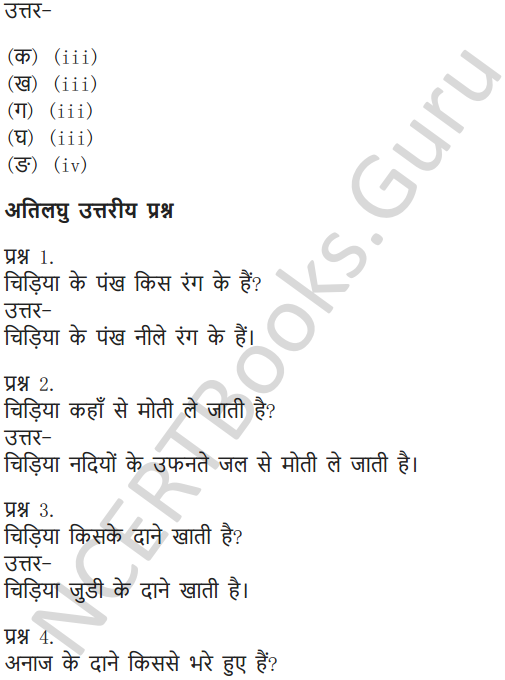Introduction
In British English, a programme means a series of events which is well planned, or the performances at a concert, or a booklet which describes them. More generally, with descriptions, a list, detailing an event comprised of discrete activities separated in time. (As an opposed to a schedule, which is more commonly a simple list, with dates and/or times.)
You can also find differences between articles on various topics that you need to know. Just tap on the quick link available and get to know the basic differences between them.
What is the Difference Between Program And Programme?
About Program
There are several meanings in English for the word Program, most of which refer to a system of things or an outline to be followed in a well-prescribed order.
You might be handed a program at a ballpark or theatre, and it will list the schedule of events, or actors or, or each roster of players of a team.
And in the 20th century, the word program came to mean the set of coded commands that a computer follows.
About Programme
Originally, the spelling programme in some English forms survives for the noun, but it is more likely to be found in some British Commonwealth nations’ publications.
Initially, a program the meaning of the Late Latin programma and the French programme, was a notice posted in public, such as to indicate the agenda for a meeting.
Both derived from the Greek programma, formed from the prefix pro- (“before”) and the verb graphein (“to write”).

Differences Between Program and Programme
|
Area Of Difference |
Program |
Programme |
| Meaning of each word | It means to modify, to regulate, set, produce a result, etc. | It means a plan of action for a specific purpose; list of acts or activities related to an event. |
| Grammatical uses | The program can be both noun and verb. | This can only be a noun. |
| Language usage | As per US English – it can be used for anything. As per UK English – the program can be used only for things related to computers. | Not prevalent in US English but as per British English, the programme is used to refer to TV shows, Agenda of meeting or any event, collection of projects etc. |

Similarities Between Program and Programme
In British English, the word Program is referred and used in context with computers, while the word programme is a preferred spelling. Similarly, in American English, the word program is acceptable for everything while both programme and program are preferred in Australian English.
In British English the term program is applied more narrowly, the American spelling denoting computer programs but occasionally applied to other sequential operations, or coded instructions, typically setting up machine tools even if they are mechanically controlled.
Also sometimes used in training jargon, though if in the context of psychology the more usual term is a condition (short for conditioned behaviour).
Frequently Asked Question on Difference Between Program And Programme
Question
Is Programme singular or plural?
Answer:
For all senses, it’s “program” and in British English always “programme” with plural “programs”.
Question
What is a Programme in broadcasting?
Answer:
In broadcasting, broadcast material created to attain some set objectives or meet certain specific needs and transmitted to some pre-determined target audience is termed a programme.
Question
What are the types of Programme?
Answer:
There are two categories of programs: the first is application programs, and the other is programs that people use as a term to get their work done.

















